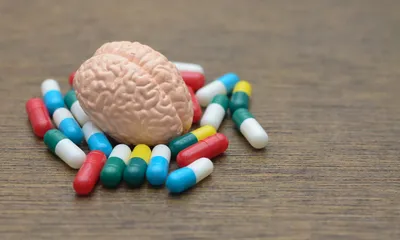Metabolism
-
Description
-
Signs & Symptoms
-
Anatomy
-
Cause
-
Diagnosis
What is Metabolism?
A person’s metabolism is a chemical process in the body that converts the food they eat into the energy needed for the body to function. It involves combining calories with oxygen to create and release energy and it’s occurring at all times to facilitate breathing, blood circulation, food digestion, cell growth and repair, body temperature regulation, and hormone level management. Their basal metabolic rate will be the minimum number of calories their body needs for energy production while resting.
How to Increase Metabolism?
Strength or resistance training to build muscle mass is one way to increase metabolism. You can also boost it through diet by eating more fresh fruits and vegetables and lean protein, plus healthier carbohydrates and fats. People often have success raising their metabolism when they do HIIT (high-intensity interval training). It’s also an excellent way to raise your metabolism and get to a healthier body weight at the same time.
Older people tend to have more difficulty increasing their metabolism when they are older. One way to prevent your metabolism from declining so much is to not skip meals and make sure you are getting 3 nutrient-dense meals at regular times during each day.
High Metabolism
Individuals with a high metabolism will be burning a greater number of calories while at rest, and this means they’re more likely to lose weight and be nearer to a healthy body weight. People will naturally have a higher metabolism in their youth, but it declines in their late-20s to early-30s and then through the remainder of their life it will be progressively slower.
Slow Metabolism
A person with a slow metabolism is the opposite; they’re going to burn fewer calories while at rest. This will mean they are more likely to be gaining weight or being at a higher body weight despite not eating any more or being more inactive than the average person. A slow metabolism may be the result of Cushing’s syndrome or hypothyroidism, and a doctor may recommend Cytomel for treatment of hypothyroidism if that is determined to be what’s behind a person’s slower metabolism.
Signs & Symptoms
- Fatigue
- Weight gain
- Cold intolerance
- Dry skin
- Constipation
- Hoarseness
- Muscle weakness
- Elevated blood cholesterol level
- Puffy face
- Thinning hair
- Bradycardia (slow heart rate)
- Depression
- Impaired memory
Anatomy
- Thyroid gland
- Pituitary gland
- Hypothalamus
- Metabolic system
- Heart
- Liver
- Muscles
- Skin
- Hair
Cause
- Autoimmune disease (Hashimoto's thyroiditis)
- Thyroid surgery
- Radiation therapy
- Certain medications
- Congenital hypothyroidism
- Pituitary disorder
- Iodine deficiency
- Pregnancy
- Infiltrative diseases (e.g., amyloidosis, sarcoidosis)
Diagnosis
- Physical examination
- Medical history review
- Thyroid-stimulating hormone (TSH) test
- Free thyroxine (T4) test
- Anti-thyroid antibodies test
- Thyroid ultrasound
- Radioactive iodine uptake test
- Cholesterol test
- Complete blood count (CBC)



